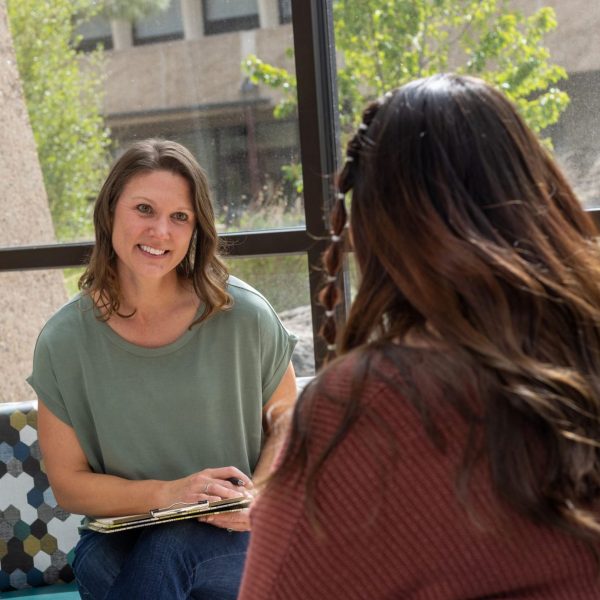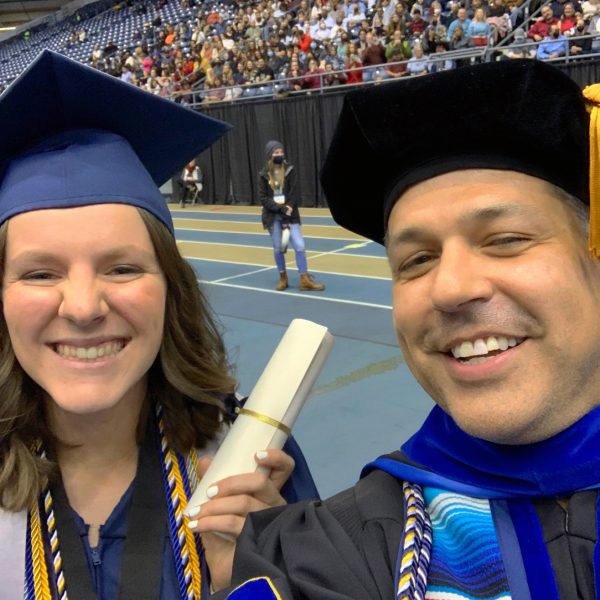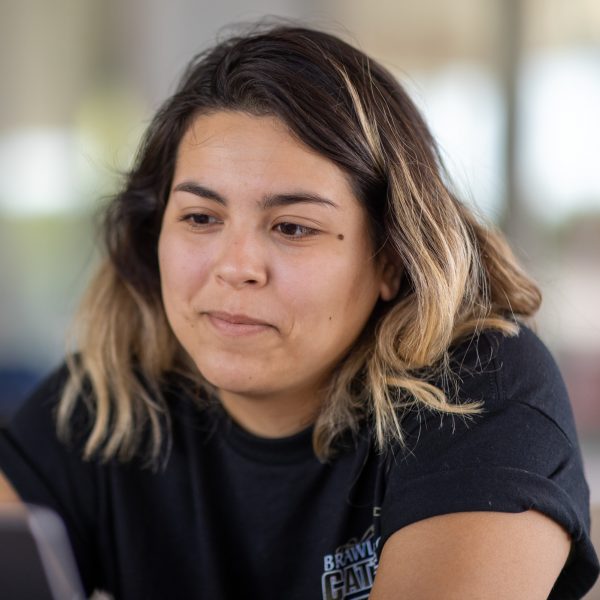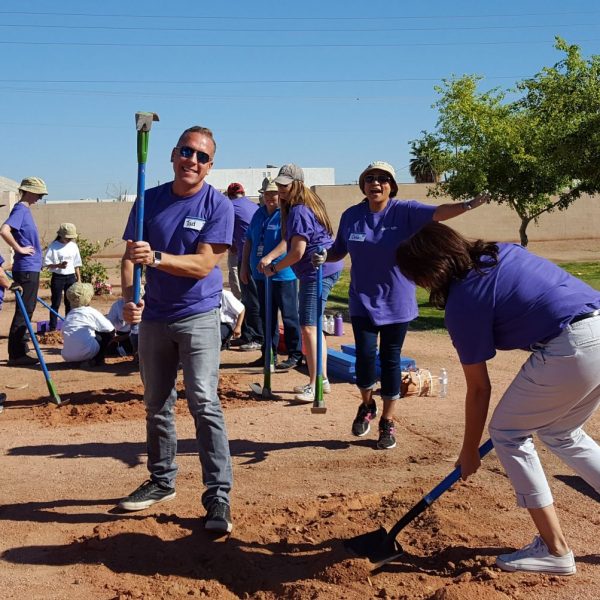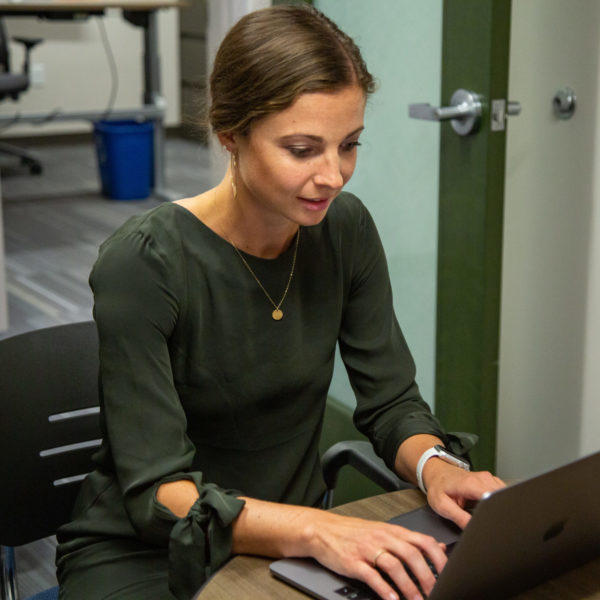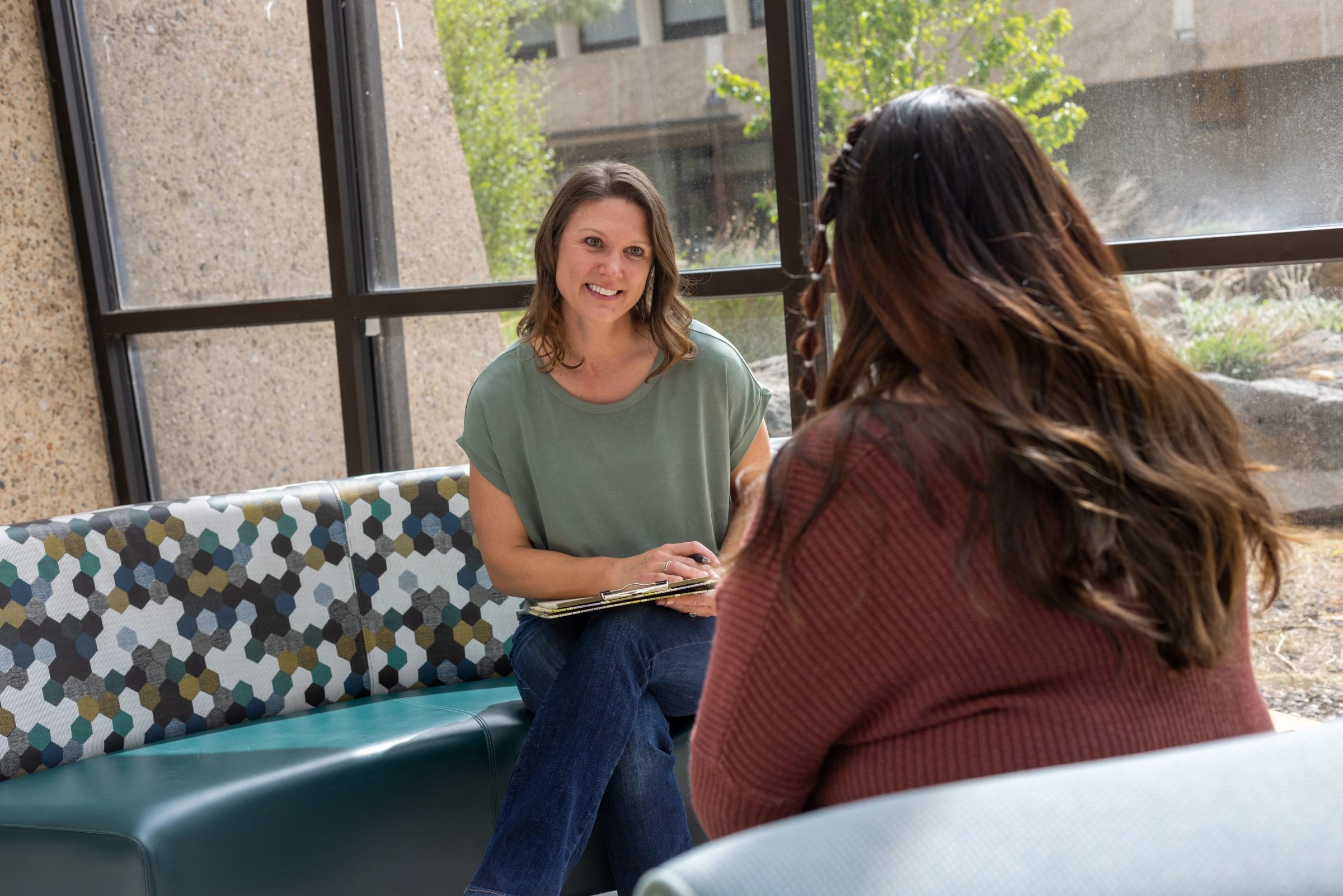
Interdisciplinary Health PhD student and Assistant Clinical Professor Katie Mommaerts is continuously striving to improve her teaching skills, expand her scholarship, and deepen her research on adolescent mental health.
Mommaerts joined NAU in 2017 as a Licensed Clinical Social Worker (LCSW) with a Master of Social Work (MSW) from the University of Wisconsin–Madison. In her faculty role as Online Field Education Coordinator, Mommaerts provides clinical supervision for students in NAU’s online Bachelor of Social Work (BSW) as they complete intensive internships with partner agencies and organizations. “I teach social work practice,” she explains, “integrating my mind-body-spirit approach into my clinical supervision of students.” As students engage in the program’s hands-on learning, they develop and refine their social work skills.
Research focuses on adolescent mental health, leads to PhD
As the mental health of American adolescents has emerged as one of the country’s most significant challenges in recent years—with disorders including depression and anxiety on the rise—we need compassionate mental health professionals now more than ever. Researchers are essential for helping clinicians understand the underlying causes of adolescent problems and how to deliver effective treatment.
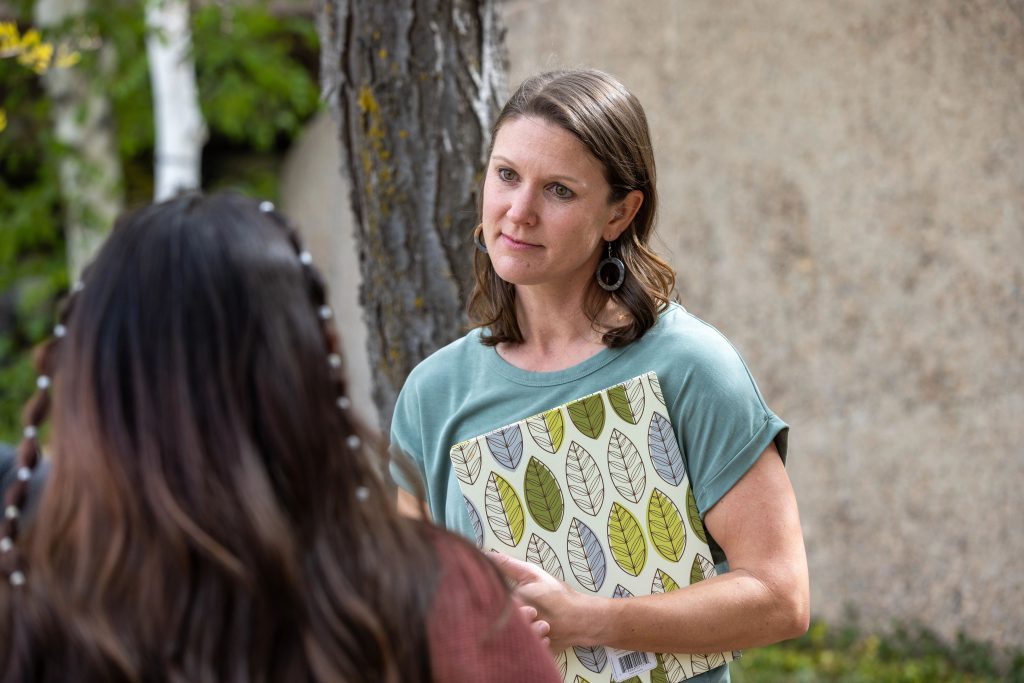
Over the course of a decade-long career as a social worker, therapist, and clinical director, Mommaerts counseled many adolescents experiencing mental health crises. During this clinical experience, she discovered that, for many teens, their self-identified issues and concerns were not addressed in their treatment plans; rather, parents and professionals defined their needs with little input from the patients themselves. “I wanted to change that, which is what led to my research focus of addressing adolescent mental health and well-being,” she says.
To realize her career objectives and her research goals, Mommaerts enrolled in the Interdisciplinary Health PhD program at NAU. “Obtaining a PhD has always been one of my goals,” she says. “I enjoy challenging myself and I truly believe in being a lifelong learner. It’s so important to personal growth, self-awareness, and insight.”
A collaborative effort between the College of Health and Human Services (CHHS) and the College of Social and Behavioral Sciences (SBS), the Interdisciplinary Health program is designed to educate and train the next generation of health researchers, advocates, and teachers. The program offers three research specialization options in Disability, Health Equity, and Psychosocial Health.
Because Mommaerts’ approach to clinical practice centers on understanding clients in the context of all the influences around them and their environment, she chose to specialize in Psychosocial Health, which encompasses the mental, emotional, social, and spiritual dimensions of well-being and resilience. Research in this area focuses on topics related to how personality characteristics, coping strategies, and social support, along with other individual, interpersonal, social, and cultural factors, affect psychosocial health. For Mommaerts, the program “speaks to my passions and highlights the importance of relationships, collaborations, and seeing the bigger picture to promote lasting change.”
Integrating adolescent voices into treatment plans
Mommaerts’ current research focuses on Mexican American females aged 14–17. She is interviewing them to better understand the pressures they’re experiencing, how that leads to anxiety, and what it’s like to walk in their shoes. She is also conducting focus groups with mental health professionals to gather their input.
“Adolescents feel pressured to excel and to act like adults, but they don’t feel that they’re treated like adults,” she says. “Social media is having both positive and negative influences on their mental health.”
Ultimately, Mommaerts believes that a greater understanding of these voices can shed light on the mental health and overall well-being of female Mexican American adolescents. “This is a very special group in a growing population,” she says. “By participating in the interviews and the research process, these young women have the opportunity to exercise autonomy, engage in social issues within their communities, enhance relationships with caring adults, and be part of the decision-making process.”
Mommaerts’ goal is to contribute original knowledge to her field that will help integrate the unique adolescent experience into individualized treatment plans, helping clinicians, parents, and teens improve adolescent mental health outcomes. “Adolescent voices are missing, and I want to change this by making their voices heard. At the end of the day, I hope my research informs educators, parents, mental health therapists, and adults who influence adolescents about the real issues that are affecting this population.”

